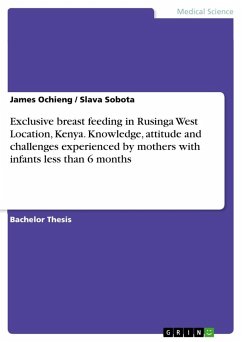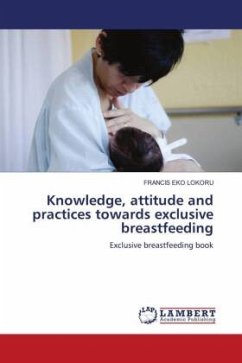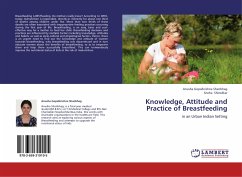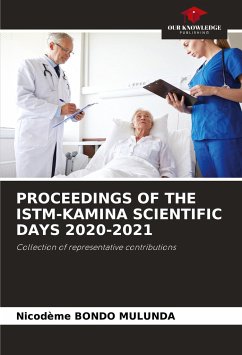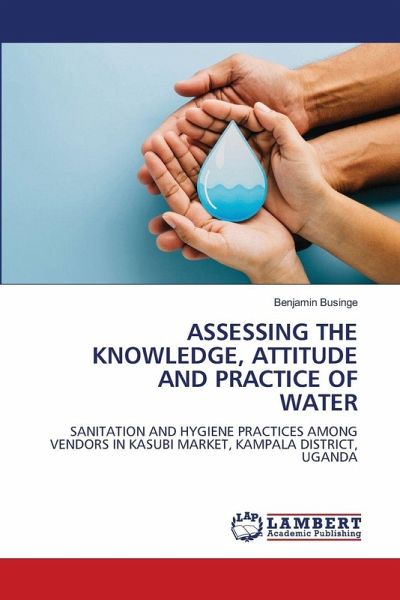
ASSESSING THE KNOWLEDGE, ATTITUDE AND PRACTICE OF WATER
SANITATION AND HYGIENE PRACTICES AMONG VENDORS IN KASUBI MARKET, KAMPALA DISTRICT, UGANDA
Versandkostenfrei!
Versandfertig in 6-10 Tagen
29,99 €
inkl. MwSt.

PAYBACK Punkte
15 °P sammeln!
This study assessed the knowledge, attitudes, and practices (KAP) of Water, Sanitation, and Hygiene (WASH) among vendors in Kasubi Market, Kampala District. A cross-sectional quantitative design was employed, targeting 100 randomly selected market vendors. Data were collected through structured questionnaires and analyzed at univariate, bivariate, and multivariate levels using SPSS version 25. Results showed that most respondents were male (53.8%), aged 30-39 years (44.3%), and had attained secondary education (57.5%). While 66% reported awareness of WASH, only 37.7% practiced recommended WASH...
This study assessed the knowledge, attitudes, and practices (KAP) of Water, Sanitation, and Hygiene (WASH) among vendors in Kasubi Market, Kampala District. A cross-sectional quantitative design was employed, targeting 100 randomly selected market vendors. Data were collected through structured questionnaires and analyzed at univariate, bivariate, and multivariate levels using SPSS version 25. Results showed that most respondents were male (53.8%), aged 30-39 years (44.3%), and had attained secondary education (57.5%). While 66% reported awareness of WASH, only 37.7% practiced recommended WASH activities. Bivariate analysis revealed significant associations between WASH practices and age (p = 0.005), marital status (p = 0.017), and monthly income (p = 0.021). Logistic regression indicated that being female (OR = 2.49) and being married (OR = 3.07) increased the likelihood of practicing WASH activities. The findings highlight persistent gaps between WASH knowledge and practice, suggesting that demographic and socioeconomic factors strongly shape behavioral outcomes. The study recommends culturally sensitive WASH interventions, enhanced advocacy, and larger-scale research to inform sustainable strategies for improving sanitation and hygiene in public markets.




